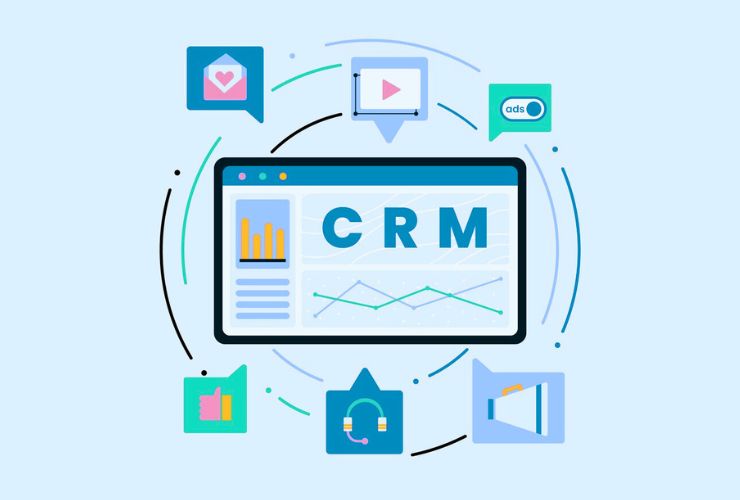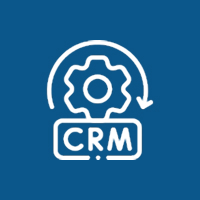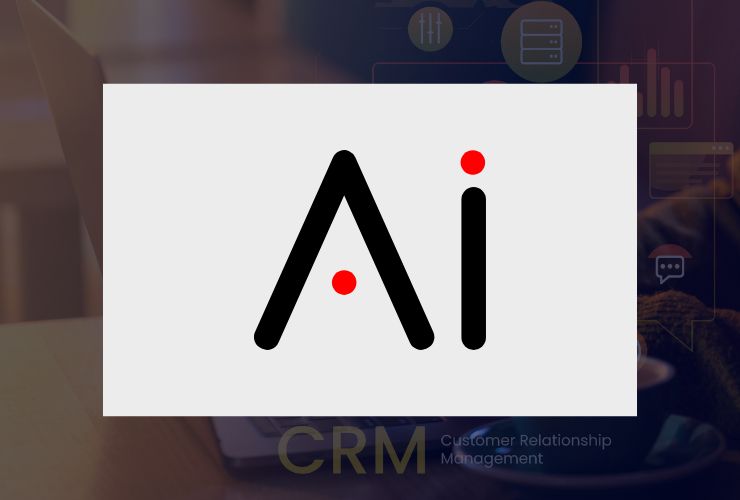In today’s customer-centric world, a CRM system is more than just a contact database.It powers personalized experiences, efficient workflows, and data-driven decisions. Behind every great CRM is a tech stack that drives scalability, security, and adaptability.
1. Backend Framework for CRM
Node.js: Real-time Performance at Scale
Node.js is a common tech choice for any CRM backend due to its event-based architecture model and non-blocking I/O. It is also the obvious choice for real-time updates of data such as updating customers live, notifications, and chat. The additional ability to scale up for Enterprise applications is a perfect point for any startup or SDKs.
Laravel (PHP): Elegant & Secure for Rapid Build
Laravel has a clean MVC framework and a full banquet of built-in features. It has everything you need to create a medium to large modern CRM that needs a modular platform with multiple user roles and permissions (many). Laravel has a usable built-in templating system that is just fine for working with layouts very quickly.
Django (Python): Data-Heavy and AI First
If your CRM strategy involves advanced data processing, analytics, or AI, Django is a smart choice.
It excels at building data-driven systems and is ideal for complex relationship management tools.
Django supports clean, reusable code and rapid development—making it perfect for analytics-heavy CRM applications.
.NET core: Enterprise Scale, Control, and Very Scalable
For the best in enterprise grade applications at a NGO, company, or government level, .NET core is the best of the best. You get high security and the performance of the Microsoft ecosystem to have the flexibility of layered robust applications where users will require extensive custom workflows.
2. Frontend Frameworks for CRM Dashboards
React.js: Fast, Dynamic, and Component-Based
React is ideal for crafting responsive CRM user interfaces with real-time updates and seamless user experiences. Its reusable components and virtual DOM contribute to better performance and cleaner development.
Angular: Scalable Framework and Robust Standards
Angular TypeScript and full-featured capabilities make it ideal for CRMs with logical complexity, multiple modules, and enterprise-style interfaces. Angular is built for maintainability and collaboration among teams.
Vue.js: Low-Cost and Developer-Friendly
Vue is flexible and simple to understand, so it makes an excellent option for early-stage startups or teams that want to customize their CRM UI. Vue is also easy for the learning curve and works well for prototyping quickly and iterative development.
3. Database and Storage Options
PostgreSQL: Powerful, Structured, and Reliable
PostgreSQL is a solid choice for CRMs that require complex queries, relational data structures, and transactional integrity. PostgreSQL has features like JSONB storage and full-text search capabilities that enhance the performance of a CRM.
MongoDB: Flexible and Schema-Less
MongoDB’s NoSQL structure works seamlessly with constantly evolving schemas relative to CRM data, making it well-suited for systems listening for multiple formats of customer data, logs, or activity history.
MySQL: Trusted and Commonly Used
MySQL continues to be a strong consideration for small-to-medium CRMs because of its reliability, simplicity, and broad support. MySQL is the perfect option when your schema is fairly stable and well articulated.
4. Integration & API Technologies
REST & GraphQL APIs: Integration Everywhere
Modern CRM systems need to connect to many different platforms, from email marketing tools to payment gateways. REST and GraphQL APIs provide flexible, scalable, real-time integrations.
Zapier / Make (Integromat): No-Code CRM Automation
Using a low/no code integration platform such as Zapier or Make can help you integrate your CRM with hundreds of other applications without having to write a single line of code. Non-developers or small teams don’t have to be coding experts to leverage modern automation to their benefit, and can bypass repetitive tasks effectively.
5. Cloud Infrastructure & DevOps Tools
Cloud Platforms (AWS, Azure, GCP): Deployable Scalable CRM
Cloud provides flexible infrastructure, geographic redundancy, high-availability and managed services which are great for deploying a CRM platform. You can pick a platform depending on where the data should reside, costs, certain specifics like a managed database, or a serverless function.
Docker & Kubernetes: Building Consistent & Portable Environments
Docker containers allow your CRM code to run the same in dev, staging, and production systems. Kubernetes leverages the use of Docker and provides added scalability, reliability, and deployment automation for the largest CRM systems.
CI/CD Pipelines (GitHub Actions, Jenkins): Deploy Fast & Safe
CI/CD tools automate testing code, deploying code, and code updates ensuring that your CRM platform is always on the latest version with minimum downtime and faster exposure to users.
6. AI & Analytics Tools for Smarter CRMs
TensorFlow & Scikit-Learn: Smarter Customer Insights
AI frameworks like TensorFlow and Scikit-learn provide predictive capabilities within your CRM for lead scoring, churn likelihood, and recommended actions for personalized experience.
Power BI & Tableau: Visualize to Make Decisions
If your CRM has the ability integrate with business intelligence (BI) tools like Power BI or Tableau, then you will be able to provide dashboards and visual reports to give managers and sales/growth teams insight into their performance in real-time.
Conclusion: The Tech Stack Drives CRM Success
CRM development is not simply about being able to track customer records. It is about creating a customer data management system that is extensible, robust, and scales as your business grows. By choosing the right combination of back-end, front-end, database, cloud-based, and AI technologies, you are creating the foundation of a CRM that provides ongoing value, growth, and compatibility.
We Offer Entirely Custom CRM Development Services at Empirical Edge
At Empirical Edge, our focus is on developing customized CRM solutions that match your individualized business requirements. Whether it’s a new CRM or an upgrade, our specialists are here to help. We design, implement, and deploy powerful CRM platforms that are secure, scalable, and innovative.
Using cutting-edge technologies, we ensure your system meets modern business needs and future growth.
Our CRM Development Services
- Custom CRM Design & Architecture
- Backend Development (Node.js, .NET Core, Laravel, Django)
- Frontend UI (React, Angular, Vue.js)
- Database Configuration (PostgreSQL, MongoDB, MySQL)
- Integration of Third-party APIs (REST, GraphQL, Zapier, etc.)
- Cloud Deployment (AWS, Azure, Google Cloud)
- CRM Workflows & Automation
- AI & Data Analytics (Power BI, TensorFlow, etc)
- Maintenance, Scaling & Support
We don’t just implement CRMs—we build smart solutions tailored to your business goals. Our Team help you manage customers more effectively, boost sales team productivity, and gain real-time business insights.
Build a smarter, scalable CRM with the right technologies. Partner with Empirical Edge to design secure, future-ready CRM solutions that improve customer relationships and accelerate business growth.
Frequently Asked Questions
The right tech stack ensures scalability, security, adaptability, and long-term business value.
Popular options include Node.js for real-time updates, Laravel for modular platforms, Django for data-heavy applications, and .NET Core for enterprise-grade security and performance.
React delivers responsive interfaces, Angular supports complex enterprise modules, and Vue offers flexibility for startups and rapid development.
PostgreSQL supports complex queries, MongoDB handles evolving schemas, and MySQL remains reliable for small-to-medium CRM systems.
Yes. AI tools such as TensorFlow and Scikit-learn support predictive insights like lead scoring and churn analysis for personalized experiences.











